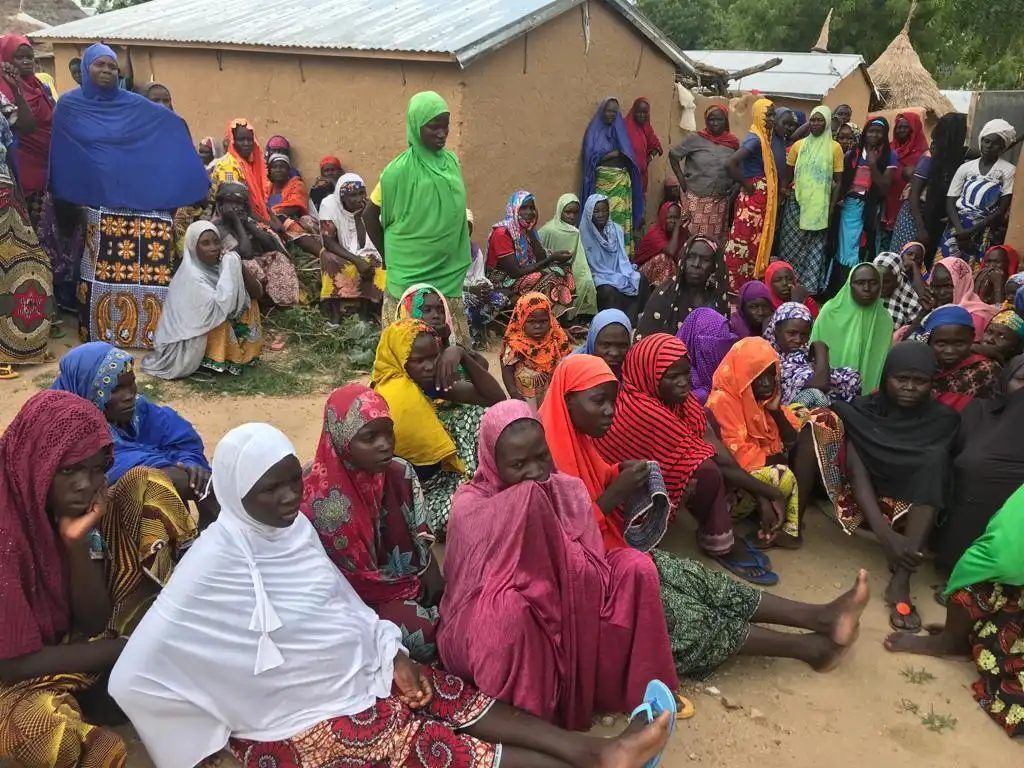Ibrahim Ngaroua, a 45-year-old father of 12, shared his chilling experience as a Boko Haram hostage with students from the Heritage Higher Institute of Peace and Development Studies (HHIPDS) at the Zamai camp in Cameroon’s Far North region. Abducted in 2017 when “hundreds of Boko Haram attackers struck our village,” Ngaroua and most of his Zeleved community were taken to a camp in Nigeria. Held for four years until his 2021 escape, he recounted the brutality of his captivity under a neem tree, shielding himself from the region’s searing heat. “The pain is palpable,” he said, displaying scars from public floggings that left him in tears.
Brutal Conditions in Captivity
Ngaroua described a regime of fear, where captives were forced to read the Koran, with defiance met by severe punishment. “Anyone who did something wrong was taken to the public square and flogged,” he recalled. Men, including Ngaroua, were tasked with grueling chores like fetching water and farming, while women were confined, forced to wear burqas, and many endured sexual slavery. An anonymous survivor, quoted by local NGO ADELPA, described being “repeatedly raped by several men” after her village was burned, leading to rejection by her family and thoughts of suicide. “I feel like a walking cadaver,” she told ADELPA, hoping her story would prevent future atrocities.
Child Victims and Forced Marriages
The horrors extended to children, with 17-year-old Aminatou recounting her forced marriage to a Boko Haram fighter at age 13. “Every night was a night of painful rape,” she told RFI, describing merciless beatings for resistance. “I lost my virginity in a rather ruthless manner.” Such accounts highlight the systematic use of sexual violence and child marriages by Boko Haram, with women and girls enduring profound trauma. These acts, verified by ADELPA, constitute war crimes, exacerbating the suffering of displaced communities.
A Daring Escape
Ngaroua’s escape came in 2021 during a military raid on the Boko Haram camp. As chaos erupted, “either you ran with Boko Haram, or you ran towards the military. Either way, you could be killed,” he said. Choosing the military, his family was spared after proving they were unarmed. Returning to Zeleved, they found a “ghost village” and were relocated to Zamai camp with 600 others. “We feel safe here, but it’s so painful to be living on the charity of others,” Ngaroua noted, reflecting the bittersweet relief of survival.
Regional Impact and Ongoing Crisis
Boko Haram’s violence, originating in Nigeria in 2009, spread to Cameroon by 2014, killing over 3,000 and displacing 250,000 Cameroonians by July 2023, per the International Crisis Group. The Zamai camp, hosting survivors like Ngaroua, is a testament to the crisis’s toll. While safe, survivors face psychological scars and social stigma, with women like the anonymous ADELPA interviewee shunned by their communities. Amnesty International and other NGOs have called for justice and increased humanitarian aid to address the region’s needs, as Boko Haram’s legacy of terror continues to haunt the Sahel.






